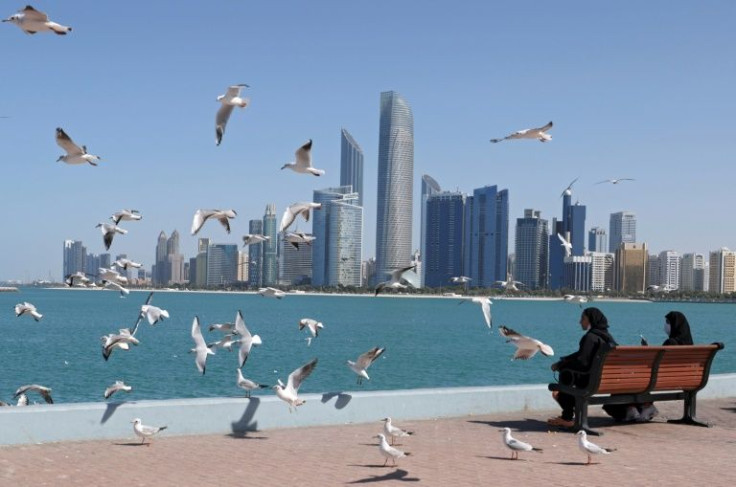Life Sans Oil: Abu Dhabi’s Market Reforms Versus Saudi’s Social Reforms

The United Arab Emirates (UAE) and Saudi Arabia have historically enjoyed cordial ties due to oil. Awash with petrodollars, both the Gulf Co-operation Council (GCC) nations are now trying to live a life without fossil fuel by integrating their economies with the global market.
But their ways differ. If the UAE is moving on the lines of a market-based approach, a conservative Saudi Arabia has to take into confidence its people first. So, in place of the UAE's market reforms, Saudi Arabia is trying to put its best foot forward by launching a slew of social reforms, focusing on its young population.
Because of its tax-free status, the UAE has become a magnet for the globe's ultra-rich and the Gulf Arab oil exporter carved out a role as an international commercial, energy, and tourism hub.
As part of the Vision 2030 program, an initiative to make the country more modern, liberal, and business and tourism-friendly, Saudi is wooing480 firms with annual revenues above $1-billion to operate their regional headquarters from Riyadh by 2030. The kingdom has asked multinational firms to comply with the order by 2024 and KPMG, Deloitte, PepsiCo, and Unilever have expressed willingness to relocate their regional headquarters.
To transform Riyadh into an international business hub, there are plans to convert King Abdullah Financial District into an economic zone similar to Dubai's free zones under the maverick leadership of heir apparent Mohammed bin Salman (MBS) who has been given charge of the Saudi economy, religion, defense, and oil.
With less than 1,000 kilometers away from Dubai, MBS is planning to rapidly modernize the Riyadh airport, and an AI-powered smart city, costing $500-billion, is being planned along the country's Red Sea coastline.
Saudi Arabia's modernization through social reforms has turned a threat to the UAE's ability to retain its status as the financial capital of Asia.
The UAE on Jan. 31 said it would introduce a federal corporate tax on business profits starting from June 1, 2023. The finance ministry said the aim was to align with international efforts to combat tax avoidance and address the challenges of digitalization of the economy.
Globally, corporate tax rates have continuously dwarfed over the past 40 years, with more than 40 percent, according to Washington-based Tax Foundation data.
The introduction of corporate tax for the first time in the Emirates fits into the strategy of diversifying its budget revenue away from oil. Thus, the tax rate at 9 percent remains low by global standards to maintain Abu Dhabi's attractiveness for businesses.
The average top corporate tax rate among the 27-member EU countries is 21.3 percent, 23.04 percent among OECD countries, and 69 percent in the G7, according to Tax Foundation.
"The tax regime will be among the most competitive in the world," the ministry said in a statement and added that it will be in line with World Trade Organization (WTO) rules.
Corporate tax sops offered to free zone units are unaffected and to support small and medium-size enterprises there will be a zero tax rate for taxable profits up to $102,000.
The UAE, however, is not watching in silence when its neighbor is out in the open wooing foreign investment through social reforms.
To allow multinational firms to better align their operations with the rest of the world, the weekend would change to Saturday and Sunday, instead of Friday and Saturday from this year -- a move Saudi Arabia cannot replicate since Fridays are reserved for Jumah (prayers) in the sharia-swearing country.
In 2019, the UAE also rolled out the Golden Visa scheme, which was awarded to selected entrepreneurs, students, and investors as an incentive to stay in the country. In 2018, the UAE launched the value-added tax (VAT) on most goods and services at a standard rate of 5 percent.
Diversification of the oil-dependent economy is taking shape through social and legal reforms in Saudi Arabia which is home to the world's youngest population, with more than half of its 35.01 million population below the age of 25 whereas UAE's 9.28 million includes 90 percent expatriates.
Last year, Saudi Arabian authorities slightly amended a law to allow adult women to live independently and vetting procedures for imported books and magazines were simplified. In 2018, the decades-long ban on cinemas was overturned and Saudi women were allowed to drive.
To reduce noise pollution, mosque speakers have been turned up to around one-third of their volume in the conservative country. Women are now allowed to visit Mecca, one of the holiest sites in Islam, without permission from a male guardian.





